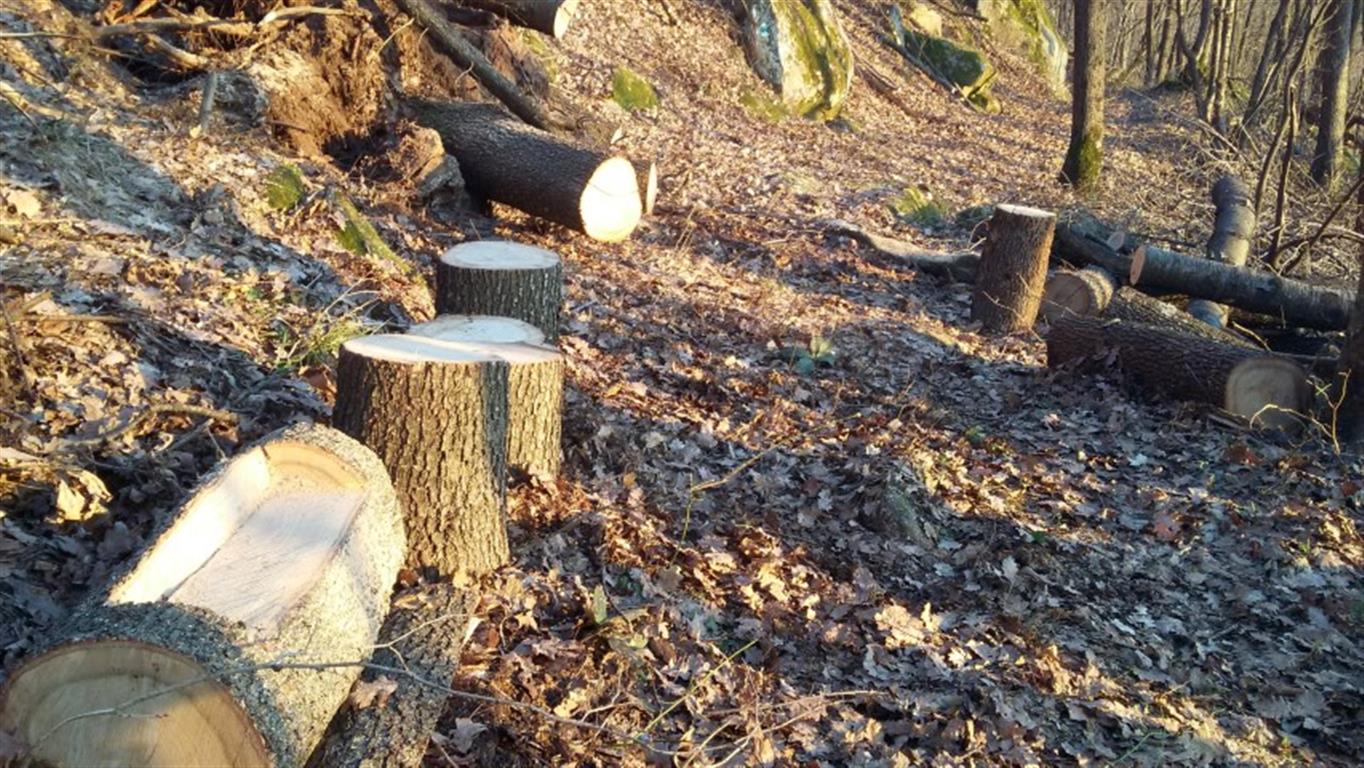Bulgarian forests are a huge natural treasure that continues to be reason for national pride in this country. Efforts aimed at preserving this treasure started long ago and continue to this day. But what are the recent threats to Bulgarian forests? We met engineer Alexander Dunchev – expert in WWF who is responsible for protection of century-old forests and improving existing laws.
“The forest is not just a source of raw material for the industry and forests do not have just economic importance. At the same time economic interest towards the Bulgarian forests grows. Every year half a million cubic meters of wood more are harvested from Bulgarian forests. This comes at the expense of other functions of the forest – social and environmental. Social function is also the ability to develop tourism. Very often tourist associations or ordinary citizens are those who signal over mass felling in forests that are traditionally used for tourism.”
 Bulgarians say forests in this country are felled en masse and in 2015 this created conditions for the society to call for a moratorium on export of Bulgarian wood. Bulgaria exports raw wood and even firewood to neighboring countries and this controversial practice led to the ban. It was lifted after law changes aiming at better transparency and increased civic control were adopted. The intensity of felling was reduced and some simple measures that include installing GPS systems on trucks and a ban on felling and transporting wood during the night were adopted.
Bulgarians say forests in this country are felled en masse and in 2015 this created conditions for the society to call for a moratorium on export of Bulgarian wood. Bulgaria exports raw wood and even firewood to neighboring countries and this controversial practice led to the ban. It was lifted after law changes aiming at better transparency and increased civic control were adopted. The intensity of felling was reduced and some simple measures that include installing GPS systems on trucks and a ban on felling and transporting wood during the night were adopted.

Mr. Dunchev warns that despite stricter rules, very often control bodies cover up violations as they become subject of extreme political and corruption pressure. Environmentalists also call for increasing the responsibility that owners of logging companies bear.
In recent years it has become obvious that illegal felling and exploitation of nature bring dire consequences varying from great floods and landslides to drought and polluted water, which affect the whole of society. Forests in Bulgaria suffer from environmental problems too. In 2015 extreme weather and fires caused serious damage to this Bulgarian treasure, experts report.
Studies show that protecting forests is the most important environmental cause for Bulgarians. Dialogue between environmental organizations and state institutions has been intensifying and this has led to the possibility for conducting joint inspections in forests, aiming at reducing manipulation of results. There are also joint projects like those for protecting century-old forests. WWF have already mapped 25,000 hectares of the last remaining old forest in Bulgaria, outside protected areas. A public platform gis.wwf.bg has also been created and there anyone can find the location of a given forest. Then in the web site of the Bulgarian Executive Forest Agency one could see if permission for felling existed for that forest. Citizens could also signal about violations and illegal felling in Bulgarian forests on telephone 112 and law changes also allow citizens to participate in making the regional forest management plans.
Anyone can help in protecting Bulgarian forests. Being better informed and wanting more transparency in their management and use are an initial step.
On the night of Saturday to Sunday (30 March), at 3am, we need to move the clock forward one hour - to 4am. This will give us an hour less sleep on that particular night, but in the long run we will be able to make better use of daylight, which should..
Bulgaria has joined a multinational nomination for accession to the element "Pasture traditions", inscribed on the UNESCO List of Intangible Cultural Heritage. The event was marked on March 28 with the official signing of the nomination by the..
The international business exhibition Architectural Building Week 2025 starts today at the Inter Expo Centre in Sofia and runs until 29 March. It is being held alongside the Green Energy and Building Information Modelling (BIM) forums. This year's..
Residents and visitors to Sofia will have the opportunity to learn more about Bulgarian scientists working in Antarctica and their important role in the..
The prices of Easter goods are rising The Easter meal in the Balkan countries will be more expensive this year, BTA reports...

+359 2 9336 661
